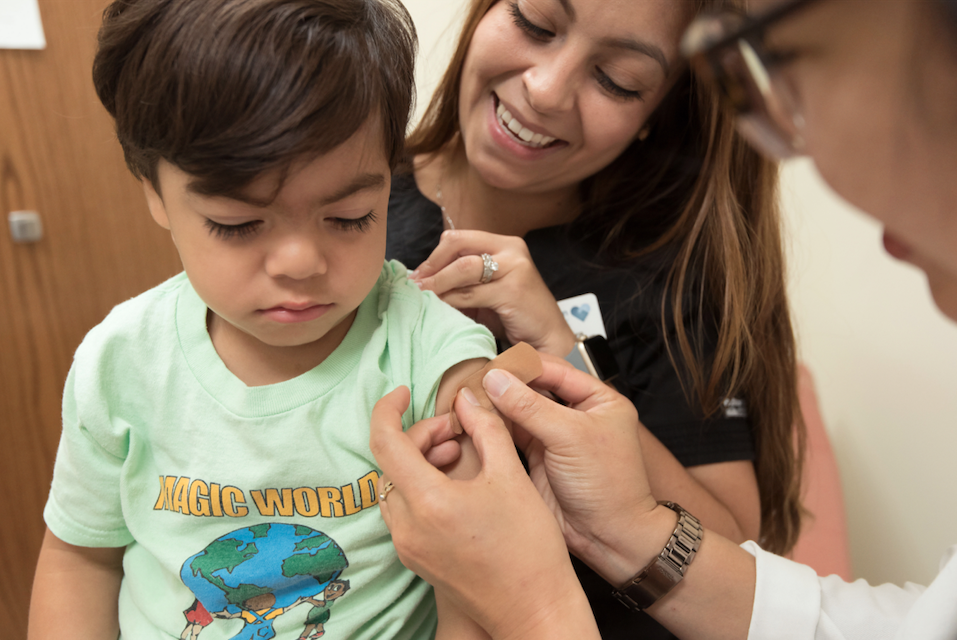Cultural Modules for Medical Spanish: The Importance of Cultural Context in Treating a Latinx Patient
Anyone who speaks more than one language can tell you that vocabulary and terminology are not the only things that change when communicating with someone in a different tongue: cultural knowledge and context are crucial to effective and accurate communication. This is certainly true for many Latinx communities in the United States. Along with the English-Spanish language barrier, cultural differences and fear of cultural misunderstandings also hinder communication for Latinx people and can make reaching out for help especially difficult.
This issue is especially prevalent in the American healthcare system, where the options to find doctors fluent in Spanish or call an interpreter to relay information is not enough to make many Latinx people feel comfortable visiting a hospital. This is where cultural competence makes a difference: a culturally-informed healthcare professional will be better able to understand patients and handle their cases more effectively. Learn how you can increase your cultural competence alongside your Spanish skills by understanding not only why cultural knowledge matters for treating Latinx patients, but also how cultural values and expectations for healthcare affect the Latinx community’s experience in the American healthcare system!
HOW PEOPLE FROM LATINX COMMUNITIES ADDRESS HEALTH ISSUES
In the United States, people from the Latinx community are less likely to get proper healthcare, whether in the form of routine checkups or more advanced treatments for specific injuries or health issues. According to a 2014 article from The Atlantic, “Latinos are the racial and ethnic group least likely to visit the doctor. More than one-fourth of Latino adults in the United States lack a usual healthcare provider and almost half of Latinos never visit a medical professional during the course of the year.” (Machado Why Many Latinos Dread Going to the Doctor)
While some attribute the smaller numbers of Latinx people enrolled in American healthcare to factors such as eligibility status or income, there are other reasons people from Latinx communities might not go to the hospital. Amanda Machado, the author of the article, writes that many Latinx people who qualify for medical benefits and can afford their medical bills can also be reluctant to see a doctor. She concludes that since Latinx communities are still less likely to get medical treatment regardless socioeconomic statuses, there must be a larger overarching reason why this is the case: culture.
Machado cites several anecdotes about the custom of self-medication in Latinx communities. She writes that people from Latinx countries like Mexico, Ecuador, and Peru turn to homemade remedies derived from plants to treat ailments instead of asking doctors for medical advice and picking up medicine from pharmacies. In her words, “These traditions still hold strong in many parts of Latin America today, providing many Latinos with a family custom of treating yourself without a professional doctor’s help.” (Machado Why Many Latinos Dread Going to the Doctor)
In the cultural modules of the Medical Spanish and Latinx Culture course, you will learn about specific myths and beliefs people from Latinx countries hold about certain herbal remedies. You will also gain insight on other ways people from Latinx communities self-medicate for their symptoms.
CULTURAL STRUGGLES OF LATINX PATIENTS IN HEALTHCARE
The traditional reliance on natural cures is not the only reason many Latinx people do not go to the doctor; for many people from Latinx countries, there is a different cultural ideal for a doctor-patient relationship that Machado describes as “personal, welcoming, and concerned for the individual as a whole.” (Machado Why Many Latinos Dread Going to the Doctor) She adds that because many doctors do not get to spend much time for each appointment and “lack time to establish relationships with patients,” many Latinx people find American doctors “untrustworthy” and their interactions with them “uncomfortable.” (Machado Why Many Latinos Dread Going to the Doctor)
As a result, many people in the Latinx community do not feel comfortable disclosing information such as symptoms and other health issues with doctors. In order to encourage patients to speak openly about their health with doctors, it is important for healthcare students and professionals to help make hospital visits more comfortable for Latinx people and to foster positive relationships similar to the ones that are the cultural ideal in Latinx countries.
Being aware of this cultural expectation is the first step to making American healthcare more welcoming to Latinx patients.
Making patients feel comfortable in medical settings is crucial to the health of the larger Latinx community. Many Latinx people have health conditions that require medical attention but are unwilling to get treatment from someone who does not understand their culture. This drives some patients to go to extreme lengths to find a doctor from the same ethnicity or from a similar background.
One of the Latinx people that Machado interviews for The Atlantic shares that her mother “would wait five hours in a waiting room to see a Latino doctor...rather than visit a non-Hispanic physician” because she wanted the level of confianza, or trust, that you feel with someone Hispanic.” (Machado Why Many Latinos Dread Going to the Doctor)
This is where EdOdyssey’s partnership with El Sol, a certified language school based in Lima, Peru, provides valuable insight into the confianza, or confidence, that Latinx patients look for in their doctors. Not only will your language instructors teach you important words to use when speaking to patients in Spanish, but they will also provide you with an opportunity to learn about healthcare directly from a Latinx perspective - all of El Sol’s educators are Latinx themselves and will teach you about Latinx healthcare from experience.
THE IMPORTANCE OF LEARNING CULTURE ALONGSIDE LANGUAGE
EdOdyssey’s Medical Spanish and Latinx Culture course is not just any online class - it is a program that infuses key cultural aspects with vocabulary specialized for medical settings. As Machado writes in the end of her article, “Healthcare workers can address these issues by offering their services on a sliding scale and translating health information into Spanish.
But healthcare professionals also need to be aware of the cultural values that Latino patients find significant.” (Machado Why Many Latinos Dread Going to the Doctor) Learning about Latinx culture and understanding how it relates to healthcare for the Latinx population is crucial to creating culturally-competent medical professionals who can make Latinx patients feel comfortable and confident in their care.
Participants in this program will gain a holistic and culturally-informed perspective on healthcare for the Latinx community through expert educators who know and live the Latinx medical experience. You will learn about how some Latinx communities turn to self-medication instead of professional evaluation for health issues to why many Latinx patients feel uncomfortable with the lack of the close doctor-patient relationship that is expected in Latin-American countries.
Additionally, you will be making great progress toward becoming a culturally-competent healthcare professional!
Want to learn more about the program?
Sources
Machado, Amanda. “Why Many Latinos Dread Going to the Doctor.” The Atlantic, Atlantic
Media Company, 7 May 2014, www.theatlantic.com/health/archive/2014/05/why-many-latinos-dread-going-to-the-doctor/361547/.




